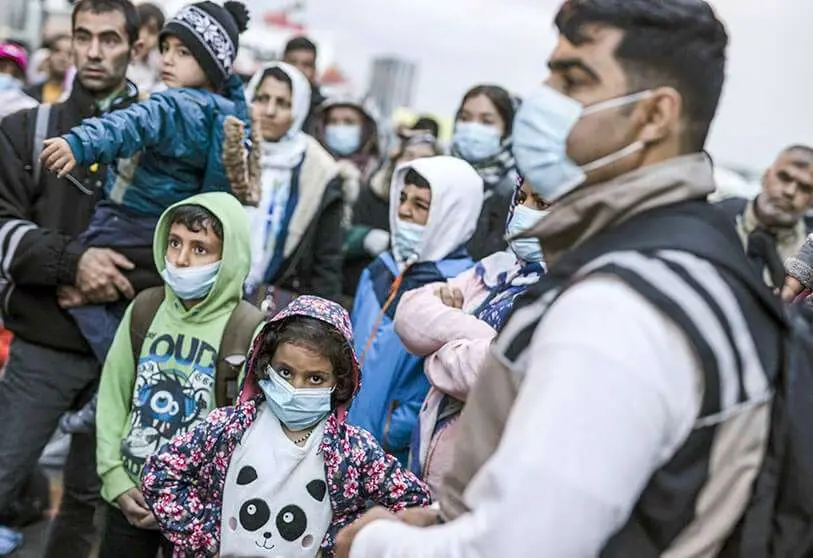OECD warns of increased vulnerability of migrants to the pandemic

The Secretary General of the Organisation for Economic Co-operation and Development (OECD), Ángel Gurría, warned on Monday of an increase in the vulnerability of migrants around the world due to the pandemic and insisted on the need to maintain integration policies, which are necessary for a solid recovery.
Gurría, who together with the European Commissioner for Home Affairs, Ylva Johansson, presented the OECD's annual migration report, expressed his concern that restrictions on the entry of immigrants and greater pressure on their departure from their countries of origin due to the crisis "are going to generate more tension in the long term".
"If there is not good integration, that will create problems," he added after warning that, with the halt in migratory flows due to the COVID-19 and its consequences, the progress made in recent years in terms of migration and the integration of these immigrant communities "has been reduced to nothing".
In its report, the OECD notes that the granting of visas or residence permits by the organisation's countries has collapsed by 46% in the first half of the year, the biggest drop in immigrant inflows in the historical series.
The fall has been particularly pronounced in countries such as Chile, Greece, Japan, South Korea and the United States, which have imposed the strictest and/or longest restrictions.
The United States, historically the largest receiver of immigrants in absolute terms, progressively reduced and suspended since spring the entry of foreigners from many countries. In June its president, Donald Trump, extended the suspension of certain visas until the end of 2020.
In Chile, the 72% reduction in permits in the first half of the year is a response to the restrictions on the entry of Venezuelans since the end of 2019, as well as to the suspension of face-to-face interviews to deal with new demands for residence.
The movement has been less marked overall in the European countries of the organization, with a decline of 35% in the first quarter and 59% in the second.
The authors of the report refer to Spain as one of the countries in which the processing of visa applications has not been suspended, although there are practical limitations to their granting, and which has prioritised and simplified procedures for agricultural and health sector workers.
As far as asylum seekers are concerned, initial estimates suggest that in Europe they fell by 33% in the first six months of the year (66% in the second quarter).
Johansson endorsed Gurría's argument that "immigration is a long-term investment" and a phenomenon that has always existed and will continue, after defending his proposal for a European migration pact and explaining that in this area "the EU must be an example" at world level.
Before this crisis made itself felt, flows of migrants had remained at the same level in 2019 as in 2018, with 5.3 million entries into OECD countries, excluding the exceptional cases of Colombia (due to the arrival of Venezuelans) and Turkey (by Syrians).
Last year, the number of immigrants in the two main receiving countries, the United States (-6 % to 1,031,000) and Germany (-3 % to 612,100), fell, while Spain came in third place with an increase of 19 % to 408,500, thus overtaking the United Kingdom (+1 % to 345,700).
Spain had not recorded figures of this order since 2008 and this was mainly due to the refugee titles granted, with 66.2 % of the 58,000 files examined having been successful.
Last year asylum applications in Spain more than doubled, to some 115,000, mostly from Venezuelans (40,000), Colombians (29,000) and Hondurans (6,700).
In the OECD countries for which data are available, in 2019, the inflow of humanitarian migrants fell by 25%, mainly from the United States, but also from the United Kingdom, Sweden and Austria.
The demands remained at around 1.2 million, far from the more than 1.6 million of the 2016 peak.







